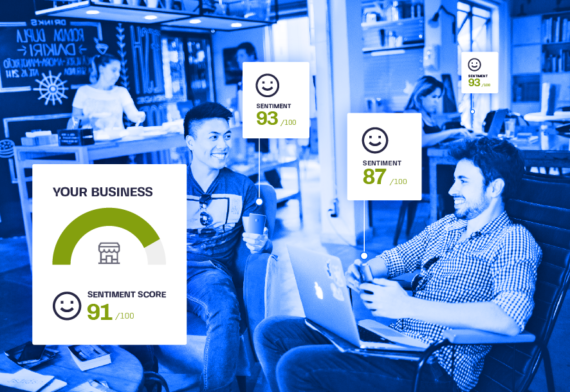The use of Alternative Data in the banking and financial industries is still in its infancy; however, the impact of the Covid-19 crisis has accelerated digitalization and data-driven strategies for many financial institutions around the world.
What does Alternative Data really mean? How can a bank take advantage of it and what are the benefits
Alberto Grisoni: Who is The Data Appeal Company and what do you do?
Mirko Lalli: Data Appeal is a company that simplifies access to and understanding of data. Our mission is to help businesses and organizations make more strategic, data-driven decisions.
A. Grisoni: Applying FinTech and technology to financial institutions is becoming more and more interesting to those who may not have strong technological skills. Could you explain what Alternative Data is and how it’s used?
M. Lalli: The concept of Alternative Data is very financial and most often used in banking. It’s an umbrella term for non-traditional data sources that can help those using it better understand certain phenomena. It can also be used to reference online brand monitoring and social listening. For example, if you’re deciding whether or not to invest in a particular stock, it’s critical to consider the company’s online reputation in addition to the standard financial information.
Sentiment is an excellent predictor (a tool capable of making predictions and forecasts) of a business. So, to simplify Alternative Data, it’s all of the information that derives from non-traditional data sources that help us better understand certain phenomena and a company’s potential.
With a great reputation and solid communication, it’s likely that you can increase prices. These dimensions represent two predictive parameters on improved turnover. There are dozens of studies linking revenue to reputation, and today this phenomenon has been accelerated by the pandemic. Keeping one’s reputation (online and online) under control has become fundamental to financial results.

A. Grisoni: Does this also apply to small businesses that may not have a website, but maybe there’s online feedback?
M. Lalli: Yes, for small businesses especially, it’s even more relevant if a business doesn’t have a website or touch points. The channel with the most year-on-year feedback growth is Google Maps. Each point of interest is associated with ratings and reviews. Customers comment on everything, even car charging stations and ATM machines. Small businesses are not immune to this phenomenon; any business has a digital footprint.
A. Grisoni: In recent months, this evolution of reputation taken into consideration has also affected the insurance system and the way insurance risk is managed. Have you also traced this trend?
M. Lalli: We have carried out several pilot tests with large insurance companies. Typically, they ask us for territorial photographs linked to certain parameters. At Data Appeal we have developed, for example, the Covid Safety Index, which measures people’s trust in relation to anti-contagion measures adopted by local companies. Through an analysis of their on and offline actions combined with customer feedback in relation to Covid-19, we detect if customer trust has improved. For insurance companies, this equates to obtaining a risk perception score, in this case related to Covid, but it can also be applied to many other dimensions and even on a territorial scale.
A. Grisoni: Could you provide two more examples of using Alternative Data in the financial sector?
M. Lalli: One example is the integration of business profiles to enrich a bank’s lending and underwriting processes. Through an automatic data exchange, bankers can better assess the risk and predict future performance with online reputation and popularity parameters.
Another example comes from an important financial customer and relates to customer experience. Recently, a client asked us to solve an age-old problem for their sales team when meeting potential customers. Micro-enterprises often have their registered office at an accountant’s or consultant’s firm; yet, their operational activity takes place elsewhere.
The sales team needed to know exactly where to go. As a company’s registration data is not enough, a brand database was needed. As a result, we have built a VAT Matching algorithm that validates the correspondence between a company and VAT (tax ID) numbers. Thanks to our machine learning technology, there’s a reliability of over 80%. The algorithm ‘matches’ businesses with corresponding VAT numbers so financial managers can search for commercial activities and businesses linked to a specific VAT number of a company under review. It seems like a trivial job, but it’s extremely complicated.



